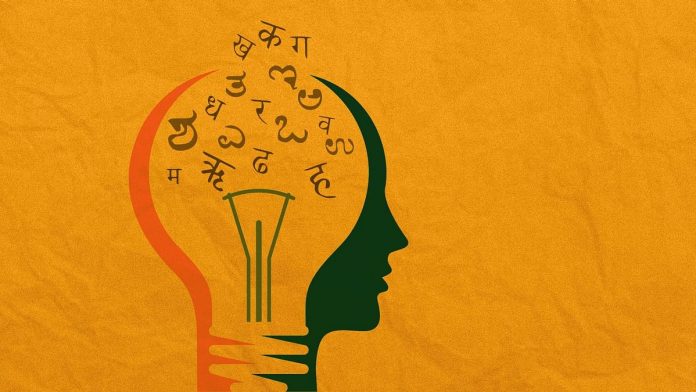This article is written by Gursimran Kaur Bakshi. This article deals with the menace of the issuance of fake degrees and certificates and their implications in the education system of a country.
Table of Contents
Introduction
In recent years, the problem of the issuance of fake degrees and certificates have become a new trend. This is partly because the COVID-19 pandemic has forced the education system to go online. But the root cause here seems to be the lack of due diligence followed by the regulatory authorities to keep checks and balances over the credibility of the universities and schools. It is true that internet-based education might offer lesser accountability on the part of the various universities, but the issue of authenticity has been there even before the traditional way of teaching faced a paradigm shift.
Problem of issuance of fake degrees and certificates
The overall problem with the issuance of fake degrees is the lack of accountability and transparency in the overall education system.
Lack of accountability
Issuance of fake degrees and certificates is malpractice. Such malpractices can only be curbed through a systematic crackdown. However, there is an overall lack of accountability over the standardisation process of various universities. The universities involved in the fake degree scams below are those universities that have either received the status of deemed universities or are affiliated with some reputed universities. However, even after the so-called acceptance by the regulatory authority of education in India which is the University Grant Commission (UGC), such incidents have taken place.
This year, UGC has declared 24 universities as fake after the same was reported in the media and students of these universities had filed complaints. Most of the fake universities were found in the state of Uttar Pradesh. The point here is, how did these institutions reach a stage to defraud the students? The answer to this is the ignorance of the UGC while granting it a status.
Below are some of the universities that have defrauded the students despite the fact that their websites show that they have been granted accreditation from the UGC.
- Digvijay Prashar was arrested in a fake degree scam for charging Rs. 1, 50, 000 for preparing fake degrees in the name of the Rajasthan Vidyapeeth University in Udaipur. Digvijay owns a private medical institute named Aastha Paramedical Institute in Sangrur.
- The Vinayaka Mission University of Tamil Nadu has been in the news for some time over rampant corruption charges. The university has been accused of granting marks to the students randomly in the marksheet and not providing degrees for years. These are serious allegations that have not been resolved yet. Some of the allegations are mentioned on the Consumer Forum website. A Right to Information (RTI) application has also been filed against the university. But all that has gone in vain.
- The chairman of the Manav Bharti University, Raj Kumar Rana, was arrested for selling over 36,000 fake degrees at prices ranging from 100,000 to 300,000 rupees. His accomplice KK Singh, former registrar and current university registrar Anupama Thakur and assistant registrar Munish Goel have also been arrested in the case.
- G Srinivas Reddy, who runs VSS Institute of Educational Research and Charitable Trust in Mahalaxmipuram, was arrested in a fake marksheet scam for selling fake degrees of about 20 universities for 10-15 lacs.
- Former Delhi Law Minister Jitendra Tomar was arrested in 2015 for procuring a fake law degree.
Lack of regulatory checks
It is highly important that there is a common authority that is responsible for accrediting the educational institutes. However, the process of accreditation has also been compromised these days for not being transparent. There is a rapid expansion in the number of ‘deemed’ universities that pretend to be affiliated with known universities. Some of them are actually scams and they are typically known as self-styled universities. But the process to check that affiliation is usually not available. That is why in India, universities like Vinayaka Mission University are known as money minting factories.
Increase of bureaucratic interferences
Educational institutes are no more neutral these days. There is some kind of political affiliation linked to the working of these institutes. The educational institutes are either public or private. The former kind of institute is regulated by the government. While the latter can be regulated by the government depending on the factor of revenue that it may receive from the government. If a private institute receives funding or backing from a governmental authority, the nature of institutes becomes quasi-private. However, in both cases political interference is possible. This negatively impacts the working of the institute at the same time it is responsible for tarnishing the image of the institute.
Rampant corruption
The rampant corruption is the end result of all the issues such as lack of accountability, rampant corruption, and lack of due diligence tests to name a few. The rampant corruption is also a result of the failure of the public to do sufficient background research on the university. As mentioned above, there is an exponential growth in so-called deemed universities providing distance learning and other different types of programmes. Most students who get scammed are the ones who are pursuing distance learning courses but the accountability in these courses is limited from the side of the university.
How to find out that your degree is fake
It is important that when a person receives a degree or certificate, they themselves should be responsible for the basic due diligence check. Here are some of the steps that a person can take to verify the authenticity of the degree and certificate.
- If a person is enrolling/enrolled in distance learning, they must do proper research to understand the status of the university. Universities can be deemed universities or affiliated to some universities. Check if they show accreditation from any standard authority.
- If there is a standard regulatory authority such as UGC in India, they have a published list of degrees that are recognised. This can be referred to understand whether the degree that a particular university is offering is acceptable or not. For the purpose of Indian universities, Section 22 of the UGC Act, 1956, can be referred to.
- In almost all cases, a special paper is used for the degree and certificates. It is unlike the normal A4 printing paper which has poor quality. This should be the first check when receiving a degree or certificate.
- Because of the COVID-19 pandemic, many universities are issuing softcopy of the degree. But that does not mean that the university will not provide the hardcopy of the degree. A person should make sure to check with the concerned university over the issuance of a hardcopy. A university must not be reluctant to issue the same.
- Also, to be on the safer side, a person should request the concerned university to send an acknowledgement/confirmation on receiving the softcopy of the degree. This may be in the form of a receipt too.
- Every degree or certificate has an identity mark. It may be in the form of a stamp, signature, security hologram, or watermark. But there must be an identification mark that is used to verify the authenticity of the same. For instance, Allahabad University has started an initiative of ‘smart degrees’ which is embedded with loads of security features to deal with forgery.
- Since most of the universities are issuing softcopies these days, various educational institutes are using QR Codes as identity marks for credibility. A person can verify the authenticity of the degree by scanning the QR Code. The All India Institute of Medical Science, Delhi has recently added QR Codes in its degrees for easy authentication. Previously, The APJ Abdul Kalam Technical University, Lucknow, also added QR Codes to their awards.
- There is a standard practice that may be followed by every institution such as the font style or the manner in which the certificates and degrees are designed. A person should thoroughly check certain things like the font used, the size of the font, the pattern in which the degree is designed, the spelling of names, and every other small detail. Degrees and certificates are often designed with a formal appearance so any kind of informal use of fonts or numerals can help a person to identify a fake degree.
- The language of the degree should also be thoroughly inspected.
Cases on the issuance of fake degrees
- Professor Yashpal v. State of Chhattisgarh (2005) is a landmark judgment wherein the Supreme Court struck down Section 5 and 6 of the Chhattisgarh Niji Kshetra Vishwavidyalaya (Sthapana Aur Viniyaman) Adhiniyam, 2002 for being ultra vires and unconstitutional. This enactment was implemented by the government of Chhattisgarh to establish self-financed private universities for higher education. These Sections were held unconstitutional because the government was empowered to establish a university based on a mere proposal or scheme that will be notified in the Gazette. The government used the legislation to establish universities in the nature of body corporates without taking into consideration the basic necessities such as the availability of infrastructure, quality of teachers, and other financial resources. None of the universities established under the Act gave due regard to the regulatory standards of the UGC.
- In Radhey Shyam v. State of Haryana (2015), the petitioner obtained a lectureship by furnishing a false M.A degree in English from the Bundelkhand University in Jhansi. The allegations made against him were proved to be true and he was subsequently dismissed from his employment. However, since he never took benefits of his service, he was not awarded the punishment of compulsory retirement. This punishment was also not awarded because the petitioner may get certain retiral benefits that he does not deserve.
- In Mrs. Sandhya Bharadwaj v. Government of NCT Delhi (2017), the issue before the court was the validity of the B.ED degree of the applicant. The applicant was working with it for the last 17 years. Her education degree came under scrutiny when the UGC published a list of fake universities that have issued false B.ED degrees and certificates. The applicant along with the teachers in question was allowed to continue their services since, at the time when they had obtained the degree, they were under a bonafide belief that these were recognised universities. The petitioner, after being informed of the fake degree obtained a B.ED degree from another university, which is recognised by the UGC. Thus, since there is no concealment of facts and that the petitioner obtained a genuine degree, she was allowed to continue her services.
How can such malpractices of issuance of fake degrees be reported
File an FIR
If a degree or certificate seems forged in accordance with the above checkpoints, a person can report the same to the police officer and lodge a First Information Report.
- A person can write a complaint to the police officer in a police station nearest to the place where the university is located.
- The complaint should mention the details of the person such as name, identity and address. The details of the incident such as the name of the course the person has enrolled in, the receipt of the fees, and the fake degree/certificate.
- The offences that the university/concerned person who has issued the fake degree should be liable for under the Indian Penal Code, 1860, are Cheating (Section 420), Section 467 (Forgery of valuable security, will, etc), and Section 468 (Forgery for purpose of cheating). This should ideally be the concern of the police officer. However, these charges are not exhausted.
File an RTI
- Right to Information (RTI) is one of the methods through which information can be requested by a public authority or a quasi-public authority that is financed by the governmental authority as per the RTI Act, 2005.
- An RTI application can be filed online through its website against the Department of Higher Education. A person will have to fill in his basic details like name, gender, address, and contact number along with the complaint. After filling in the details, the form should be submitted.
Report to the regulatory authority
To report such malpractices, there is no one way. In every country, there must be a common regulatory authority that should be responsible for maintaining the due diligence of the educational institutions. Here are some of the countries that have regulatory authority to ensure the credibility and accountability of educational institutions. You can either report directly to the concerned university that has issued the fake certificate or visit the regulatory authority of your country for a verification test.
- India: In India, UGC is a governmental authority that is responsible for maintaining the credibility of educational institutions. To check the credibility of an Indian university, the details of the university can be verified at the UGC website. Whereas, the authenticity of the degree can be verified at the National Academic Depository (NAD). The NAD is a digital depository of the government for academic degrees. Here is a list of fake universities published by UGC. In 2020, the Bar Council of India has launched a clean-up plan for verifying fake law degrees and certificates in the country.
- United States of America: The authenticity of degrees and diplomas can be checked at the Database of Accredited Postsecondary Institutions and Program and Council for Higher Education Accreditation.
- United Kingdom: If an individual has pursued an education at any level in the United Kingdom, the educational degree and certificates can be verified with the help of the information provided by the British government on its website or by the British Council’s verification services.
- Australia: For overseas degrees, the Department of Education, Skills, and Development of the Australian Government has a list of organisations that assess the credibility of the degree.
- Canada: In Canada, the Council for Higher Education Accreditation can provide information on a particular institution.
Other than these, there are universities that allow students to verify their degrees through their own websites.
What are the implications of such malpractices
The biggest concern with the issuance of fake degrees and certificates is that it jeopardises the quality of education. At the same time, it reflects the failure of the system to contain such malpractices. Since the education systems across the globe have almost gone online, there has been an increase in the number of institutions providing education at lower admission fees, or without a standard entrance examination. But there is not only an increase in the number of educational institutions. There is a proportional increase in the number of students taking admission in various institutions. Moreover, because of the limitations that the COVID-19 pandemic has entailed, there is a tremendous increase of students and professionals taking up online courses and diplomas. Thus, there is a chain reaction through which such drastic changes are taking place.
Some of the major concerns are noted here:
- Fake degrees and certificates result in bad quality of education.
- It ruins the reputation of the institute.
- If an education system is indulging in such malpractices, this may be a result of rampant corruption.
- Such malpractices severely impact the lives of students and even forces them to commit suicide.
Conclusion
The issuance of fake degrees and certificates is one of the biggest concerns in a given society because only through quality education can a society grow and flourish properly. This is not just a concern of a particular institute, it is a matter of concern for the whole system because, without the support or ignorance of the political system, such malpractices cannot take place. The need of an hour is to understand the root cause of the menace and install a fair and transparent method of securing an education.
References
- https://legislative.gov.in/sites/default/files/A1860-45.pdf.
- National Academic Depository.
- Welcome to UGC, New Delhi, India.
Students of Lawsikho courses regularly produce writing assignments and work on practical exercises as a part of their coursework and develop themselves in real-life practical skills.
LawSikho has created a telegram group for exchanging legal knowledge, referrals, and various opportunities. You can click on this link and join:
https://t.me/joinchat/J_0YrBa4IBSHdpuTfQO_sA
Follow us on Instagram and subscribe to our YouTube channel for more amazing legal content.
 Serato DJ Crack 2025Serato DJ PRO Crack
Serato DJ Crack 2025Serato DJ PRO Crack











 Allow notifications
Allow notifications


